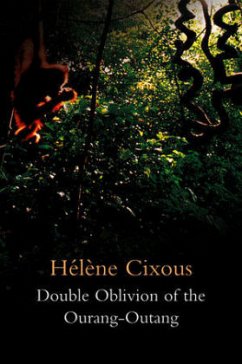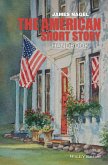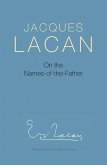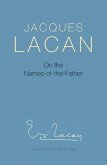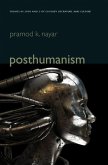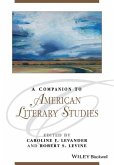Cixous is generally regarded as one of the leading, if not theleading French feminist author writing today.
This book tells the story of how the author re-discovers a boxfrom the past, containing a book manuscript from over fifty yearsago. This leads to reflections on literary creativity, memory,identity and dreams.
In 2009, the writer-narrator finds a Box. Within it lie the pages of her very first manuscript, pages she thought she had long since thrown away. Le Prénom de Dieu was the text that marked the start of her prodigious career, and yet for the narrator it is also the Nameless Book, the-Book-that-could-never-be-read, the book written by someone other than her. Now, once again, it heralds a beginning, as its discovery is the start of a journey into the past.
The title, with its reference to the murderous Ourang-Outang of Edgar Allan Poe's The Murders in the Rue Morgue, sets the scene: this is a detective story haunted by literary ghosts. At the very heart of literature lies the fascination with the enigma, the search for something that has been lost. Cixous illustrates this as she leads her reader on a hunt for the ultimate hidden treasure, in the company of an array of venerable predecessors from Saint-Simon, Proust and Stendhal to Shackleton, Poe and Jacques Derrida.
Double Oblivion of the Ourang-Outang is a text about literature. It speaks of the books you read and the books you write, those you remember and those you forget, those you fear and those you revere. It is also a powerful, evocative tale of beginnings and endings, of remembering and forgetting, of things and their doubles.
In a densely woven narrative, Cixous's latest text focuses on the extraordinary voyage that is literary creation, and in doing so also explores the themes of memory, loss and subjectivity.
Hinweis: Dieser Artikel kann nur an eine deutsche Lieferadresse ausgeliefert werden.
This book tells the story of how the author re-discovers a boxfrom the past, containing a book manuscript from over fifty yearsago. This leads to reflections on literary creativity, memory,identity and dreams.
In 2009, the writer-narrator finds a Box. Within it lie the pages of her very first manuscript, pages she thought she had long since thrown away. Le Prénom de Dieu was the text that marked the start of her prodigious career, and yet for the narrator it is also the Nameless Book, the-Book-that-could-never-be-read, the book written by someone other than her. Now, once again, it heralds a beginning, as its discovery is the start of a journey into the past.
The title, with its reference to the murderous Ourang-Outang of Edgar Allan Poe's The Murders in the Rue Morgue, sets the scene: this is a detective story haunted by literary ghosts. At the very heart of literature lies the fascination with the enigma, the search for something that has been lost. Cixous illustrates this as she leads her reader on a hunt for the ultimate hidden treasure, in the company of an array of venerable predecessors from Saint-Simon, Proust and Stendhal to Shackleton, Poe and Jacques Derrida.
Double Oblivion of the Ourang-Outang is a text about literature. It speaks of the books you read and the books you write, those you remember and those you forget, those you fear and those you revere. It is also a powerful, evocative tale of beginnings and endings, of remembering and forgetting, of things and their doubles.
In a densely woven narrative, Cixous's latest text focuses on the extraordinary voyage that is literary creation, and in doing so also explores the themes of memory, loss and subjectivity.
Hinweis: Dieser Artikel kann nur an eine deutsche Lieferadresse ausgeliefert werden.
"Few writers today can express the literary in the way Cixous can." -- Times Literary Supplement
"Cixous recalls anew many of the figures who have peopled her universe over the years: Joyce, Kafka, Stendhal, Derrida, her cats, her mother, her children. They return as new, doubles of their earlier selves. With characteristic humour, this 'Double Oblivion' explores how forgetting keeps the past not just alive but young." -- Mairéad Hanrahan, University College London
"Who tells the story: the narrator, distracted discoverer of her own first "larval" book and carer for a mother doughtily exploring the furthest reaches of her years? Or is it the narrator's companions and inner inhabitants? In addition to the Ourang-Outang, she makes room for Heathcliff, Stendhal, most especially her twin Jacques Derrida, not forgetting Rimbaud, Nefertiti, Proust and Poe. Or does the story emanate from the strange character of the Box? Where exactly is oblivion, reading's double? Where does memory lodge? In what cupboards, words and elliptical lakes? Nothing escapes Cixous in her tender, unflinching attention to the duels with oblivion we all face.' -- Sarah Wood, University of Kent
"Cixous recalls anew many of the figures who have peopled her universe over the years: Joyce, Kafka, Stendhal, Derrida, her cats, her mother, her children. They return as new, doubles of their earlier selves. With characteristic humour, this 'Double Oblivion' explores how forgetting keeps the past not just alive but young." -- Mairéad Hanrahan, University College London
"Who tells the story: the narrator, distracted discoverer of her own first "larval" book and carer for a mother doughtily exploring the furthest reaches of her years? Or is it the narrator's companions and inner inhabitants? In addition to the Ourang-Outang, she makes room for Heathcliff, Stendhal, most especially her twin Jacques Derrida, not forgetting Rimbaud, Nefertiti, Proust and Poe. Or does the story emanate from the strange character of the Box? Where exactly is oblivion, reading's double? Where does memory lodge? In what cupboards, words and elliptical lakes? Nothing escapes Cixous in her tender, unflinching attention to the duels with oblivion we all face.' -- Sarah Wood, University of Kent

